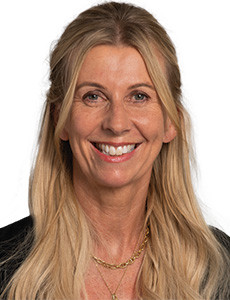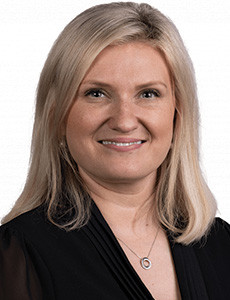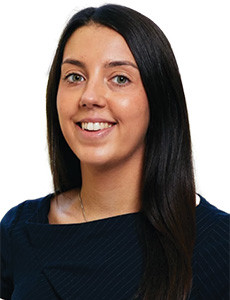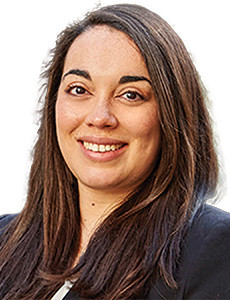*/


‘I quickly realised that clerking was the heart of the business and that I would only be effective in a senior leadership role if I was involved in that.’
Lizzy started out in financial services before moving into the legal sector, and soon found her feet in clerking. She emphasises the importance of hard work and a commitment to excellence in the face of challenges inherent in this demanding environment. Citing her father as her biggest inspiration, Lizzy advises aspiring clerks, especially women, to ‘work hard, listen carefully, be yourself, and try not to make assumptions’.
Throughout her career, she has enjoyed working with inspiring individuals such as Dame Sue Carr, Lady Chief Justice. One of her proudest moments is the feedback received in her appraisal last year, acknowledging the lasting impact of her contributions to her colleagues and the broader legal community. As Lizzy looks to the future, she remains committed to driving positive change in the profession and advancing the interests of clients.

‘I thought that I would do this until I worked out what I was going to do when I grow up and I’m still doing it over 20 years later!’ says Katie. Despite the challenges of being a working parent, she has thrived in the world of legal clerking.
Katie underscores the importance of building networks, advocating for oneself and fostering positive relationships. Her advice to aspiring clerks, particularly female clerks, is to ‘build your network’ and ‘highlight your own achievements’. Katie’s own career highlights include seeing colleagues progress in their careers.
Commenting on the evolution of the profession, Katie notes the important and increasing focus on diversity and work-life balance, and the role of clerks in expanding the pool of barristers and promoting a supportive workplace culture.

‘Building trust with the people you work with is always a challenge when you are new,’ Emily acknowledges, but through open dialogue and advocacy on behalf of her colleagues, she has navigated her path to senior leadership.
Her advice to aspiring clerks is to embrace the challenges and leverage their strengths, while developing ‘a degree of thick-skinned-ness’ – ‘it helps with the resilience you’ll inevitably need’. On the evolving landscape for women clerks, she underscores the need for advancement opportunities as well as networks from which you can draw support.
Emily wants to see greater diversity in senior clerk and chambers management roles. She actively encourages young women to pursue careers in clerking and legal practice management, recognising the value of mentorship and representation.
‘Remember, clerking is also a career which demands a high level of emotional intelligence, empathy, compassion and nurturing. You’ll rarely hear a senior clerk being described in this way but I truly feel women are already naturally suited to becoming the most successful senior clerks.’

‘When I first began my career, I was always mistaken as a secretary or receptionist and met with surprise when I said I was, in fact, a clerk.’
Lucy began her career in clerking in September 2008 at the age of 18 after having left college only a month before. Despite lacking prior knowledge of the legal profession and encountering these stereotypical views along the way, determination drove her up the ranks.
Inspired by strong female role models in her family, Lucy’s advice is to: ‘Know your worth and never forget it.’ Her commitment to empowering other women in the legal profession is evident in her aspirations for the future: increased diversity and representation, particularly for individuals from disadvantaged backgrounds. Lucy remains dedicated to supporting and mentoring the next generation of clerks.


‘I quickly realised that clerking was the heart of the business and that I would only be effective in a senior leadership role if I was involved in that.’
Lizzy started out in financial services before moving into the legal sector, and soon found her feet in clerking. She emphasises the importance of hard work and a commitment to excellence in the face of challenges inherent in this demanding environment. Citing her father as her biggest inspiration, Lizzy advises aspiring clerks, especially women, to ‘work hard, listen carefully, be yourself, and try not to make assumptions’.
Throughout her career, she has enjoyed working with inspiring individuals such as Dame Sue Carr, Lady Chief Justice. One of her proudest moments is the feedback received in her appraisal last year, acknowledging the lasting impact of her contributions to her colleagues and the broader legal community. As Lizzy looks to the future, she remains committed to driving positive change in the profession and advancing the interests of clients.

‘I thought that I would do this until I worked out what I was going to do when I grow up and I’m still doing it over 20 years later!’ says Katie. Despite the challenges of being a working parent, she has thrived in the world of legal clerking.
Katie underscores the importance of building networks, advocating for oneself and fostering positive relationships. Her advice to aspiring clerks, particularly female clerks, is to ‘build your network’ and ‘highlight your own achievements’. Katie’s own career highlights include seeing colleagues progress in their careers.
Commenting on the evolution of the profession, Katie notes the important and increasing focus on diversity and work-life balance, and the role of clerks in expanding the pool of barristers and promoting a supportive workplace culture.

‘Building trust with the people you work with is always a challenge when you are new,’ Emily acknowledges, but through open dialogue and advocacy on behalf of her colleagues, she has navigated her path to senior leadership.
Her advice to aspiring clerks is to embrace the challenges and leverage their strengths, while developing ‘a degree of thick-skinned-ness’ – ‘it helps with the resilience you’ll inevitably need’. On the evolving landscape for women clerks, she underscores the need for advancement opportunities as well as networks from which you can draw support.
Emily wants to see greater diversity in senior clerk and chambers management roles. She actively encourages young women to pursue careers in clerking and legal practice management, recognising the value of mentorship and representation.
‘Remember, clerking is also a career which demands a high level of emotional intelligence, empathy, compassion and nurturing. You’ll rarely hear a senior clerk being described in this way but I truly feel women are already naturally suited to becoming the most successful senior clerks.’

‘When I first began my career, I was always mistaken as a secretary or receptionist and met with surprise when I said I was, in fact, a clerk.’
Lucy began her career in clerking in September 2008 at the age of 18 after having left college only a month before. Despite lacking prior knowledge of the legal profession and encountering these stereotypical views along the way, determination drove her up the ranks.
Inspired by strong female role models in her family, Lucy’s advice is to: ‘Know your worth and never forget it.’ Her commitment to empowering other women in the legal profession is evident in her aspirations for the future: increased diversity and representation, particularly for individuals from disadvantaged backgrounds. Lucy remains dedicated to supporting and mentoring the next generation of clerks.


Now is the time to tackle inappropriate behaviour at the Bar as well as extend our reach and collaboration with organisations and individuals at home and abroad
A comparison – Dan Monaghan, Head of DWF Chambers, invites two viewpoints
And if not, why not? asks Louise Crush of Westgate Wealth Management
Marie Law, Head of Toxicology at AlphaBiolabs, discusses the many benefits of oral fluid drug testing for child welfare and protection matters
To mark International Women’s Day, Louise Crush of Westgate Wealth Management looks at how financial planning can help bridge the gap
Casey Randall of AlphaBiolabs answers some of the most common questions regarding relationship DNA testing for court
Maria Scotland and Niamh Wilkie report from the Bar Council’s 2024 visit to the United Arab Emirates exploring practice development opportunities for the England and Wales family Bar
Marking Neurodiversity Week 2025, an anonymous barrister shares the revelations and emotions from a mid-career diagnosis with a view to encouraging others to find out more
David Wurtzel analyses the outcome of the 2024 silk competition and how it compares with previous years, revealing some striking trends and home truths for the profession
Save for some high-flyers and those who can become commercial arbitrators, it is generally a question of all or nothing but that does not mean moving from hero to zero, says Andrew Hillier